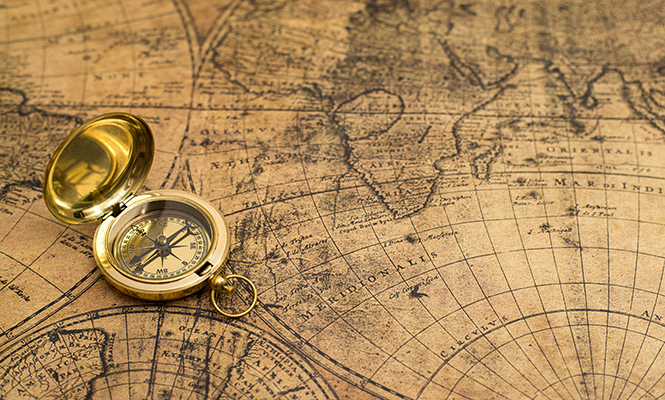Every year, the International Programs Committee of the American Association of Neurological Surgeons (AANS) selects from among many qualified applicants two international neurosurgeons to participate in the International Visiting Surgeons Fellowship at a program in North America of their choice. This fellowship is intended to provide meaningful educational experiences to international neurosurgeons from developing countries who are practicing and/or teaching neurosurgery in their home countries. The main goal of the program is to partner fellows with experienced neurosurgeons to observe best practices and advancements in the field of neurosurgery that they can then impart to their colleagues upon returning home.
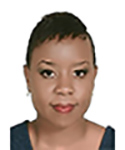
This past class of International Visiting Surgeon Fellows celebrates ten years of the fellowship and ten years of AANS furthering educational opportunities throughout the world. Our two recipients were Claire Karekezi, MD, from Kigali, Rwanda, and Jude-Kennedy Chinedu Emejulu, MD, from Nnewi,
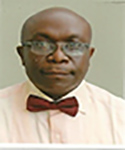
Nigeria. Dr. Karekezi completed her fellowship at Brigham and Women’s Hospital at Harvard Medical Center under the guidance of Ennio Antonio Chiocca, MD, PhD, FAANS, where she focused on neuro-oncology and brain tumor surgery while Dr. Emejulu worked under the guidance of Olawale A. R. Sulaiman, MD, PhD, at the Ochnser Medical Center where he focused on the spine. Below they talk about their fellowship experiences, lessons learned and neurosurgery in their home countries.
What would you like people around the world to know about neurosurgery in your country?
Karekezi – Rwanda is a landlocked country in central east Africa and like most other African countries it remains vulnerable to a great shortage of neurosurgeons. The number of neurosurgeons is still far too low. There are only two neurosurgeons currently there and three more neurosurgeons that will be returning home soon after completing their training abroad, including myself the first and only female neurosurgeon. There are also three neurosurgeons being trained locally. Together we serve a total population of 12 million.
One MRI serves the whole country and there are still great challenges ahead like the low number of supporting specialties: Neuro-anesthesia, Neuro-ICU, Neuro-oncology (radiotherapy and chemotherapy) Neuro-pathology, Neuro-radiology. A residency program in neurosurgery has been started and is partnering with many of the leading U.S. educational institutions. There is still a lot to do.
Emejulu – Nigerian neurosurgery has great potential, but has remained at a sub-optimal level and low standard on account of poor social infrastructure – power supply, equipment, research, remuneration – and a lack of political will.
Given the necessary support, neurosurgeons in Nigeria have the human capacity and intellectual endowment to raise the standards of neurosurgical practice to acceptable levels in order to positively impact healthcare delivery in Africa and the world.
How does the International Visiting Surgeon Fellowship impact your current work?
Karekezi – The International Visiting Surgeon Fellowship gave me the opportunity to transition from my work as chief resident in my program in Morocco to being a visiting fellow at a great institution like Brigham and Women’s Hospital. Through this transition I was able to transfer my clinical knowledge to clinical skills.
I also had the opportunity to form part of a neurosurgical team for a little while and learn from their great organization and the manner with which they ran their neurosurgical department and residency training program. These experiences will help me structure my future work in my country.
Emejulu – My International Visiting Surgeon Fellowship experience has widened my theoretical and practical experiences and vision. Unfortunately, I have been unable to deploy some of the knowledge and skills which I gained from it on account of the fact that my institution does not have the relevant facilities required to practice the skills I acquired e.g. operating microscope, Stealth Station, electric/power drills, spinal implants like titanium rods, plates and screws, aneurysm clips, Gelfoam and thrombin, C-Arm intraoperative x-ray machine, etc. In the future, I want to advocate for the importance of investing in these new technologies to bring better healthcare to our patients in Nigeria.
What was your favorite moment during your fellowship experience?
Karekezi – I really enjoyed every moment working and exchanging ideas with a great team of young researchers and fellows at the Golby Lab run by Alexandra J. Golby, MD, FAANS.
Emejulu – My favorite moment was observing minimally invasive spine surgery, peripheral nerve surgery, and transnasal pituitary surgery at close range under the direction of Olawale A. R. Sulaiman, MD and Marcus Lemar Ware, MD, PhD, FAANS.
When you got back to your country what did you tell people about your fellowship experience?
Karekezi – When I returned to Morocco, I shared with my colleagues in my program that I received genuine mentorship and guidance from my mentor and the faculty at the Brigham and Women’s Hospital with warmth and generosity and I found that simply amazing. I had a once in a lifetime opportunity to get exposed to a multidisciplinary group of talented individuals which improved my way of thinking and of managing various brain conditions. I will certainly share this amazing experience with my colleagues in Rwanda when I go back after my graduation.
Emejulu – I shared with everyone that international best practices in neurosurgery are achievable in Nigeria if we set our mind to attain this goal and that the possibilities in neurosurgery using modern technologies are limitless. I am positive that given the appropriate hardware and support we can do in Nigeria what our colleagues are doing in America.
What would you tell other applying to the International Visiting Surgeon Fellowship?
Karekezi – I would definitely encourage them to apply. It was an amazing experience for me not only regarding the academic exposure, but also for all the connections in the field I have been able to make. These are the people who might help in the future establish similar teaching values in my own country.
It was also an opportunity to learn about the health system abroad especially in the United States and how it works, and of course meet new people and make new friends.
Emejulu – I believe that the AANS International Visiting Surgeon Fellowship is definitely worth the time and effort and that the experience of this fellowship is way beyond any other experience I had during my residency or specialist training program. Anyone who gets the opportunity should seize it without thinking twice.
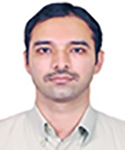
The AANS International Programs Committee is proud to celebrate 10 years of the International Visiting Surgeon Fellowship and looks forward to welcoming the 2017 International Visiting Surgeon Fellows Lakshmi Prasad Govindaraju, MBBS, MCh, from Manipal, India, and Gyang Markus Bot, BM, BCh, from Jos, Nigeria. Dr. Govindaraju will be
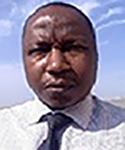
carrying out his fellowship at Rady Children’s Hospital at the University of California in San Diego, CA under the guidance of Michael Lee Levy, MD, PhD, FAANS where his focus will be on the subspecialty of pediatric surgery. He has chosen this area so that he can serve the large population of children in his region of India for which there are no neurosurgeons focused exclusively on pediatric neurosurgery. Dr. Bot’s fellowship will take place at the University of California in San Francisco, CA where he looks forward to working in the Lawton Laboratory under the direction of Michael T. Lawton, MD, FAANS and his associates. Dr. Bot is looking forward to furthering his skills and also working on raising support for a neurosurgical cadaver laboratory in his home country of Nigeria.
The AANS opens the application cycle for the International Visiting Surgeon Fellowship every year in April for the following year. A call for applications will once again go out next April 2017 for the 2018 fellowship. Neurosurgeons from developing countries who will practice and/or teach neurosurgery in their home countries are invited to submit an application. More information on fellowship benefits and requirements can be found here.
[aans_authors]



